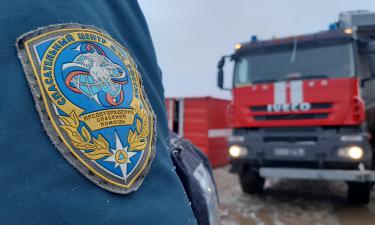U.S. producers angry after Japan beef ban
As Japan halted imports of U.S. beef because of mad cow fears, angry cattle producers worried about the threat to their industry with the loss of the nation's largest overseas beef market. With the market closed just six weeks after Japan lifted a two-year ban on American beef, some U.S. producers were angry with the New York meatpacking plant that shipped spinal column bone tissue, a mad cow disease risk, Asian countries say, in a shipment of veal. "They shouldn't have done it," said Tim Wilhelm, part owner of the Tulia Livestock Auction and a cattle producer in the Texas Panhandle. "I can't believe they did that. They need to be more careful." The news angered producers at Harris Ranch in Coalinga, California, which says it sent the first shipment of U.S. beef to Japan six weeks ago.
"You get geared up for that, and then to find out that the market is temporarily taken away because someone from New York state with a small shipment messed up well, it's disheartening, frustrating and maddening," said Bruce Berven, the company's vice president of marketing. Kathleen Kelley, a rancher from Meeker, Colorado, and a member of R-CALF Stockgrowers of America, said the incident suggests that enforcement by the Agriculture Department is inadequate. "We've said for a long time that we have to live by high standards, that it's our future," Kelley said. "We can't continue down this path or we're not going to have an industry."
The shipment of the bone was unfortunate, but it poses no risk of mad cow disease, said Gary Weber, head of regulatory affairs for the National Cattlemen's Beef Association in Denver. "We support every rule being followed to the letter, and hope this won't affect the rest of the industry when it shouldn't," Weber said.
The ban comes at a particularly bad time for Texas, which is in the midst of a drought that has ruined hay crops and sent prices skyrocketing. Dwyatt Bell, a part-time producer in Sulphur Springs, said the closing will be a major problem, much like the drought.
The bone tissue Japan found is allowed in the U.S. food supply because it comes from animals younger than 30 months of age. However, the U.S. agreement with Japan bars spinal column and other bone tissue because officials fear they can be dangerous, reports the AP. N.U.
Subscribe to Pravda.Ru Telegram channel, Facebook, RSS!




